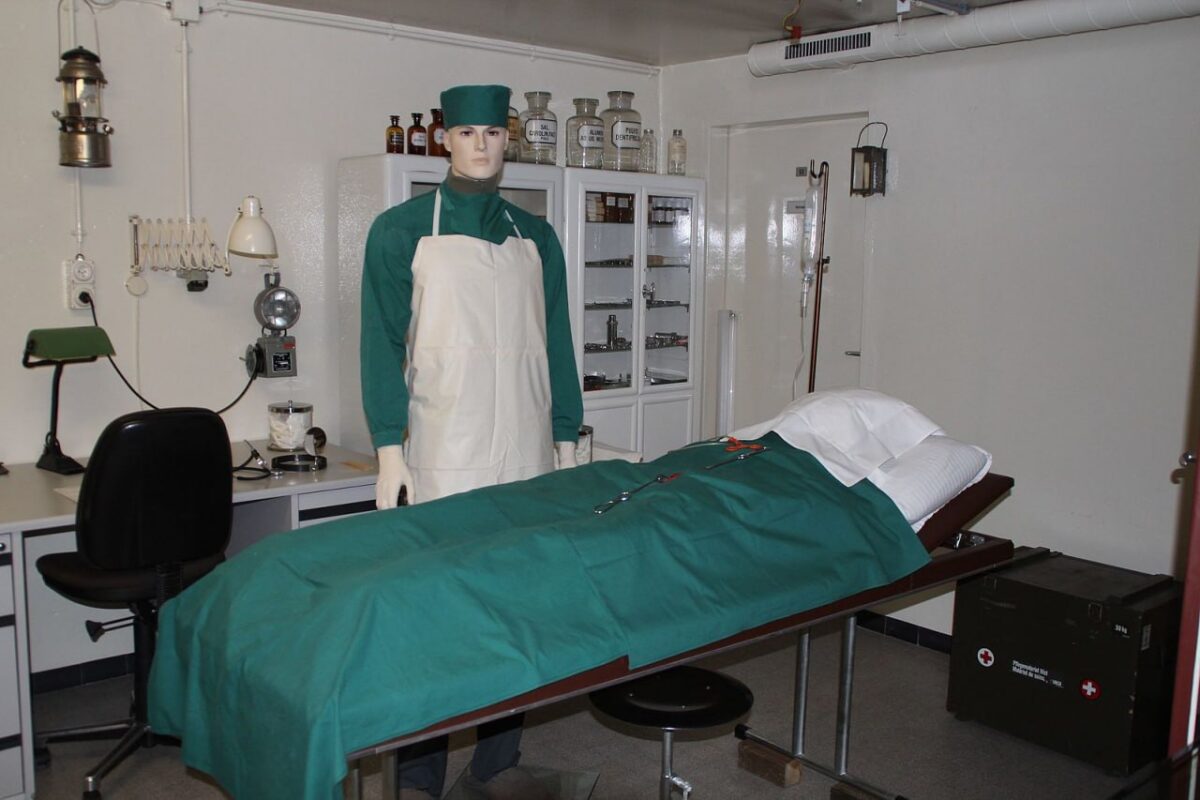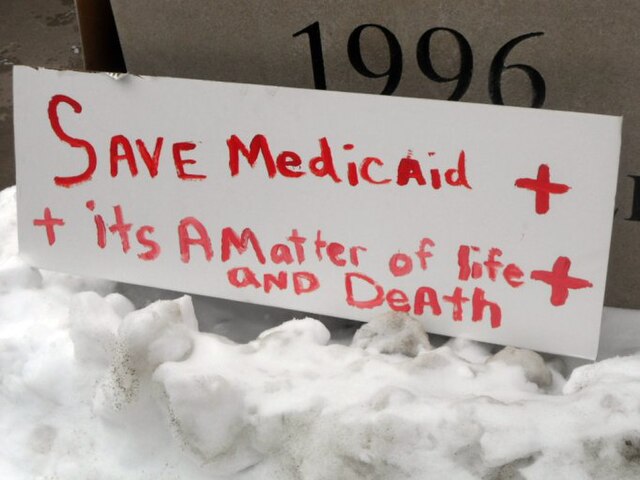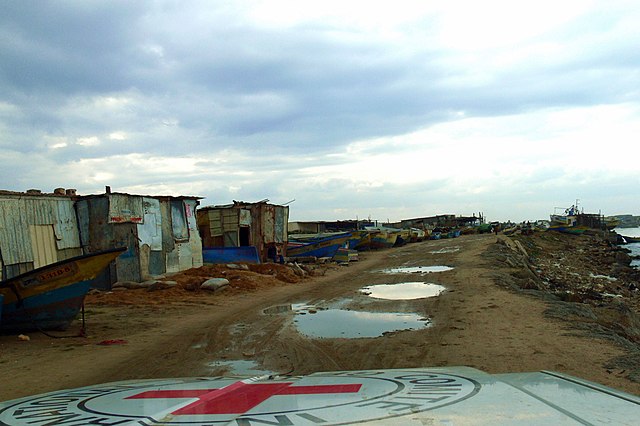On Wednesday 1 December 2021, the People’s Covid Inquiry (PCI) organised by Keep Our NHS Public (KONP) presented its finished report. In the absence of a formal official public inquiry into the pandemic, the PCI began in February 2021 and concluded hearings in June. It covered all aspects of the government’s handling of the pandemic and heard testimony from a wide range of people and organisations. These included previous government advisors and key academics, as well as frontline workers and bereaved family members.
The Inquiry was chaired by renowned human rights barrister Michael Mansfield QC. In the report, a panel of experts delivered the findings and recommendations on all main aspects of the pandemic to date.
Key findings
These include:
1. The depleted state of the National Health Service and other public services prior to the pandemic was a determining factor in poor outcomes and led to avoidable deaths.
2. The government was poorly prepared for the pandemic and moved too slowly, which led to avoidable death.
3. The government adopted the wrong strategy leading to loss of life and growing mistrust in its advice.
4. The government’s poor record on inequalities put the most vulnerable at risk from illness and death from Covid-19.
5. There is a case to be made for a criminal charge of misconduct in public office.
The Inquiry chair sums up
The PCI chair Michael Mansfield QC, said:
“This People’s Covid Inquiry report is unequivocal – dismal failure in the face of manifestly obvious risks… This Inquiry performed a much-needed and urgent public service when the nation was hit by a catastrophic pandemic coincident with an unprecedented period of democratic deficiency. It afforded an opportunity for the beleaguered citizen to be heard; for the victims to be addressed; for the frontline workers to be recognised; and for independent experts to be respected. When it mattered most and when lives could have been saved, the various postures adopted by government could not sustain scrutiny.
It was plain to Keep Our NHS Public (the organisers of the People’s Covid Inquiry) that Government words were bloated hot air, hoping to delay and obfuscate. Within this narrative lies a theme of behaviour amounting to gross negligence by the Government, whether examined singularly or collectively. There were lives lost and lives devastated, which was foreseeable and preventable. From lack of preparation and coherent policy, unconscionable delay, through to preferred and wasteful procurement, to ministers themselves breaking the rules, the misconduct is earth-shattering.”
Filling the silence
Dr Tony O’Sullivan, Co-Chair of KONP, stated that the Inquiry had filled a deafening silence from government and had set out to learn the lessons that could save lives in this and future pandemics. The avoidable loss of tens of thousands of lives through the neglect of pandemic planning, the run down of the NHS, and the intense inequality in the United Kingdom – was shocking. The Inquiry had heard of the pride in their work of NHS, care and other frontline staff and about their pain, exhaustion and moral injury.
The level of government cronyism and resultant profiteering had been blatant and in plain sight. The overall conclusion was that a strong case could be made that there had been misconduct in public office. This needed to be addressed, since if ignored, the country would not be able to learn the lessons from today to face the challenges of tomorrow.
The overall conclusion was that a strong case could be made that there had been misconduct in public office. This needed to be addressed, since if ignored, the country would not be able to learn the lessons from today to face the challenges of tomorrow.
The pandemic is not over, and infection rates and death tolls are rising once again. As winter approaches and the omicron variant takes hold, the government needs to act decisively to prevent further avoidable deaths. With political will and public support, there is no reason that the UK can’t still emerge from the pandemic with an NHS that is not on the brink of collapse as it is now. The UK having learnt lessons, gained experience, and given proper investment in publicly provided health-and-care services, should be able to keep the nation safe, as and when another crisis like this occurs.
Michael Mansfield expanded on the charge of ‘Misconduct in Public Office’
The phenomenon of a ‘pandemic’ is hardly novel with a long history of plagues of one sort or another including recent examples such as Severe Acute Respiratory Syndrome (SARS – 2003) and Middle East Respiratory Syndrome (MERS – 2012; spread from camels). Anyone in government responsible for health and safety must have been aware of the risk of a pandemic recurrence.
This responsibility is well recognised by the tenets of international and domestic law. Internationally it is embraced by a number of different instruments – the Universal Declaration on Human Rights (1948 Article 25); the Charter of the UN (Article 1 1945); the Constitutional provisions of the World Health Organisation (WHO) and the World Health Assembly (1946/1948 – creatures of the UN and engaging over 190 states) both committed to countering cross border health threats and giving rise to the International Health Regulations (IHR 2005).
Of especial interest is the 1966 International Covenant on Economic, Social and Cultural Rights (ICESCR). Articles 12 (1) and (2) read:
‘The States Parties to the present Covenant recognize the right of everyone to the enjoyment of the highest standard of physical and mental health.
The steps to be taken by the States Parties to the present Covenant to achieve the full realization of this right SHALL include those necessary for . . .
(c) The prevention, treatment and control of epidemic, endemic, occupational and other diseases.‘
The United Kingdom ratified this treaty in 1976.
Legal obligations
UK domestic law reflects these obligations via the Human Rights Act 1996 (HRA) s6, by which the government must act in a manner compatible with the European Convention Articles (ECHR). For example Art 2, the Right to Life. Even more specific is the National Health Service Act 2006 s2A which imposes a duty to protect the public from diseases and other dangers to public health, and indicates appropriate steps which may be taken.
Public Health England (PHE) as the executive arm of the Department of Health and Social Care (DHSC) together with the Minister – Matt Hancock – bore ultimate responsibility. Both have gone, as Mr. Hancock resigned and PHE was replaced by the UK Health Security Agency in the summer of 2020.
According to the government website this agency will be responsible for planning the prevention and response to external health threats and providing intellectual scientific and operational leadership at national local and global levels. It will ensure the nation can respond quickly and at greater scale to deal with pandemics and future threats.
Abolishing PHE during the pandemic was likened to taking the wings off a malfunctioning plane in flight in order to achieve a safe landing. This abolition might in itself be taken as an admission of failed pandemic response.
Recent specific warnings in relation to pandemic had been either ignored, or was set aside. In 2006 the Government Office for Science predicted a global pandemic within the next 30 years due to a virus mutating from a wild animal to humans (zoonotic disease).
Ten years later, in 2016, there were two exercises, the full details of which have not been made public until recently – Cygnus and Alice. The details of Cygnus were eventually leaked after threats of legal action. In June 2020, the Health Minister in the House of Lords at the time (Lord Bethell), asserted that such simulations should remain secret ‘so that the unthinkable can be thought‘.
Lord Bethell has since been mired in controversies surrounding lack of transparency over the awarding of lucrative government covid related contracts to associates of Conservative party members of parliament.
Loss of trust revealed by secrecy
A government that had lost the trust and confidence of the people did not want the public to know that the Cygnus report came to the conclusion that:
“The UK’s preparedness and response in terms of plans, policies and capability, is currently not sufficient to cope with the extreme demands of a severe pandemic that will have a nationwide impact across all sectors.”
Health Secretary Mr. Hancock failed to reveal that on top of Cygnus, in the same year, there had been ten pandemic exercises modeling different scenarios. Some were for Ebola, some for flu but one was prompted by a MERS outbreak, and therefore was for CORONAVIRUS. This too was kept secret despite PHE and the DHSC both being centrally involved. The government should, therefore, have been well prepared for the eventuality that presented itself at the end of 2019.
The NHS and social care infrastructure should not have been neglected and run down; effective in date Personal Protective Equipment should have been readily stored and accessible; track and trace provision should have been anticipated as vital to basic public health measures; extra NHS hospital space should have been carefully planned; with an adequate NHS trained staffing complement at the ready; quarantine conditions and support sorted; and strict border controls and isolation facilities programmed in advance.
None of this is hindsight, as the PCI report makes clear – the report is unequivocal. This pandemic response has been a dismal failure in the face of manifestly obvious risks.
Where is the official government judicial inquiry?
The Prime Minister initially rejected the idea of an independent public judicial inquiry into the Covid-19 pandemic. Pressed by the bereaved and others, he eventually conceded in the summer of 2020 that there would be one – but not until later. Months went by and nothing more was said until earlier this year when the bereaved repeated their request. Again rebuffed, ‘the time was not right’ and it would interfere with government work.
Eventually he appeared to relent and announced that there would be one ‘launched’ in the Spring of 2022. However, despite continued requests there is no definition of ‘launch’, no date, no judge, no terms of reference, no infrastructure. Nothing in fact up to the time of publication of the PCI report at the end of November.
The public deserves the truth, recognition and admissions
For behaviour to be categorised in criminal law as misconduct in public office, it must be serious enough to amount to an abuse of the public’s trust in the office holder and:
‘must amount to an affront to the standing of the public office held. The threshold is a high one requiring conduct so far below acceptable standards as to amount to an abuse of the public’s trust in the office holder.‘
The test for a jury has been said to be whether the conduct is worthy of condemnation and punishment, in other words: ‘Does it harm the public interest?’
The possibility of legal proceeding against government ministers should now be explored. If and when a judicial inquiry is held, the PCI will happily make all its evidence available – an important contemporary record made during the pandemic itself and not years afterwards.
Relevant links
-
The full PCI report including executive summary
-
Video of the press conference 1 December




